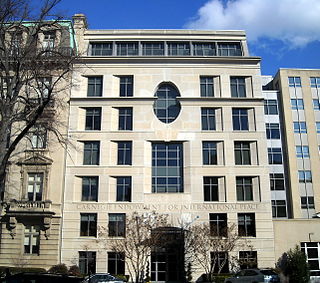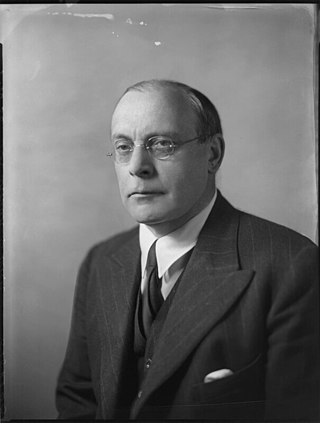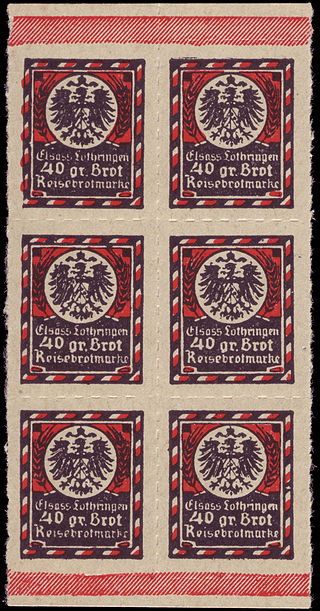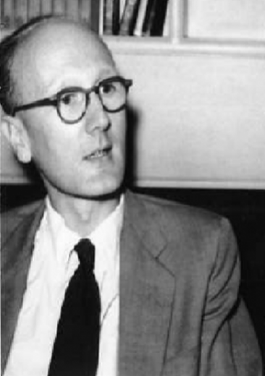Related Research Articles

Elihu Root was an American lawyer, Republican politician, and statesman who served as the 41st United States Secretary of War under presidents William McKinley and Theodore Roosevelt and the 38th United States Secretary of State under Roosevelt. In both positions as well as a long legal career, he pioneered the American practice of international law. Root is sometimes considered the prototype of the 20th-century political "wise man", advising presidents on a range of foreign and domestic issues. He also served as a United States Senator from New York and received the 1912 Nobel Peace Prize.

The Carnegie Endowment for International Peace (CEIP) is a nonpartisan international affairs think tank headquartered in Washington D.C., with operations in Europe, South and East Asia, and the Middle East as well as the United States. Founded in 1910 by Andrew Carnegie, the organization describes itself as being dedicated to advancing cooperation between countries, reducing global conflict, and promoting active international engagement between the United States and countries around the world. It engages leaders from multiple sectors and across the political spectrum.

The Armistice of 11 November 1918 was the armistice signed at Le Francport near Compiègne that ended fighting on land, sea, and air in World War I between the Entente and their last remaining opponent, Germany. Previous armistices had been agreed with Bulgaria, the Ottoman Empire and Austria-Hungary. It was concluded after the German government sent a message to American president Woodrow Wilson to negotiate terms on the basis of a recent speech of his and the earlier declared "Fourteen Points", which later became the basis of the German surrender at the Paris Peace Conference, which took place the following year.

Henry Noel Brailsford was a British journalist and writer, considered one of the most prolific left-wing journalists of the first half of the 20th century. A founding member of the Men's League for Women's Suffrage in 1907, he resigned from his job at The Daily News in 1909 when it supported the force-feeding of suffragettes on hunger strike.

David J. Rothkopf is an American foreign policy, national security and political affairs analyst and commentator. He is the founder and CEO of TRG Media and The Rothkopf Group, a columnist for the Daily Beast and a member of the USA Today Board of Contributors. He is the author of ten books including Running the World: The Inside Story of the National Security Council and the Architects of American Power, National Insecurity: American Leadership in an Age of Fear, and most recently, Traitor: A History of American Betrayal from Benedict Arnold to Donald Trump. He is also the podcast host of Deep State Radio. Rothkopf also serves as a registered foreign agent of the United Arab Emirates.
Joseph Cirincione (, SIR-in-see-OWN-ee is a national security analyst and author. He served as the president of the Ploughshares Fund, a public grant-making foundation focused on nuclear nonproliferation and conflict resolution.

James Arthur Salter, 1st Baron Salter, was a British civil servant, politician, and academic who was involved in many efforts of international economic cooperation, often in conjunction with France's Jean Monnet.

The Greater Middle East is a political term introduced in March 2004 in a paper published by the Carnegie Endowment for International Peace as part of the U.S. administration's preparatory work for the Group of Eight summit of June 2004. The area denotes a vaguely defined region called the "Arab world" together with Afghanistan, Iran, Pakistan, and Turkey with the speculation of including other Muslim-majority countries such as Indonesia, Bangladesh and the Central Asian countries of Uzbekistan, Kazakhstan, Kyrgyzstan, Turkmenistan and Tajikistan. The paper presented a proposal for sweeping change in the way the West deals with the Middle East and North Africa.

Thomas Patrick Lowndes de Waal is a British journalist and writer on the Caucasus. He is a senior fellow at Carnegie Europe. He is best known for his 2003 book Black Garden: Armenia and Azerbaijan Through Peace and War.

The Islami Jamhoori Ittehad was a right-wing conservative alliance formed in September 1988 to oppose the democratic socialist Pakistan Peoples Party in elections that year. The alliance comprised nine parties, of which the major components were the Pakistan Muslim League (PML), National Peoples Party (NPP), Jamaat-e-Islami (JI), with PML accounting for 80% of the IJI's electoral candidates. The Inter-Services Intelligence (ISI) agency, under director Hamid Gul, had a major role in forming the right-of-centre political alliance. Care had been taken to ensure that the alliance comprised nine parties to generate comparison with the nine-party Pakistan National Alliance (PNA) that had campaigned against PPP in 1977.
The Allied Maritime Transport Council (AMTC) was an international agency created during World War I to coordinate shipping between the allied powers of France, Italy, Great Britain, and the United States. The council was formed at a conference in Paris on 3 November 1917, in response to the resumption of unrestricted submarine warfare earlier that year. The United States formally joined the AMTC only on October 1, 1918. The Transport Council existed until March 1919, when it was merged with the Supreme Economic Council. Its executive committees were disbanded.

The Blockade of Germany, or the Blockade of Europe, occurred from 1914 to 1919. The prolonged naval blockade was conducted by the Allies during and after World War I in an effort to restrict the maritime supply of goods to the Central Powers, which included Germany, Austria-Hungary, and the Ottoman Empire. The blockade is considered one of the key elements in the eventual Allied victory in the war. In December 1918, the German Board of Public Health claimed that 763,000 German civilians had already died from starvation and disease caused by the blockade. An academic study done in 1928 put the death toll at 424,000. An additional 100,000 people may have died during the post-armistice continuation of the blockade in 1919.
Yezid Sayigh is a Palestinian academic. He is the senior associate at the Carnegie Middle East Center in Beirut, Lebanon. Previously, he was a professor of Middle East Studies at the Department of War Studies at King's College London, a member of the Academic Board of the Gulf Research Center, and a member of the board of trustees of the Palestinian Center for Policy and Survey Research (PCPSR). From 1994 to 2003, he was the assistant director of studies at the Centre of International Studies at Cambridge University. Sayigh also headed the Middle East Research Programme of the International Institute for Strategic Studies (IISS) in London from 1998 to 2003. Sayigh was a negotiator of the 1994 Gaza–Jericho Agreement between the Palestine Liberation Organisation and Israel. He headed the Palestinian delegation to the Multilateral Working Group on Arms Control and Regional Security (1992-1994), and was a MacArthur Scholar and Research Fellow at St Antony's College, Oxford (1990-1994). From 2005 to 2006, Sayigh was a visiting professor at the faculty of Political Studies and Public Administration at the American University of Beirut.

The president of Columbia University is the chief officer of Columbia University in New York City. The position was first created in 1754 by the original royal charter for the university, issued by George II, and the power to appoint the president was given to an autonomous board of trustees. The university suspended operations upon the outbreak of the American Revolutionary War, during which no individual served as president. When it was resuscitated by the New York State Legislature, the university was placed directly under the control of the Board of Regents of the University of the State of New York; its chancellor, George Clinton, served as the de facto president of Columbia University. Through the efforts of Alexander Hamilton and John Jay, control of the university was returned to a private board of trustees in 1787, which has to this day maintained the right to appoint or remove the president, who also serves on the board ex officio. The university's first president was Samuel Johnson, who held the office from 1754 to 1763, and its 20th and current president is Minouche Shafik, whose tenure began on July 1, 2023.
The League of Nations Union (LNU) was an organization formed in October 1918 in Great Britain to promote international justice, collective security and a permanent peace between nations based upon the ideals of the League of Nations. The League of Nations was established by the Great Powers as part of the Paris Peace Treaties, the international settlement that followed the First World War. The creation of a general association of nations was the final one of President Woodrow Wilson's Fourteen Points. The LNU became the largest and most influential organisation in the British peace movement. By the mid-1920s, it had over a quarter of a million registered subscribers and its membership eventually peaked at around 407,775 in 1931. By the 1940s, after the disappointments of the international crises of the 1930s and the descent into World War II, membership fell to about 100,000.

Andrew Carrigan Kuchins is an American political scientist, academic, and former head of American University of Central Asia. He has held senior positions at several think tanks, including Carnegie Endowment for International Peace, Center for Strategic and International Studies and Carnegie Moscow Center. Kuchins has written numerous books, articles, book reviews. He has been interviewed on mainstream and academic outlets including as CNN, Politico, The New York Times, The Washington Post, Washington Times, The Moscow Times, Chicago Tribune and CS Monitor. Additionally, Kuchins has given testimony before the United States Congress on Russia, Central Asia and the Caucasus.
Michael Pettis is an American professor of finance at Guanghua School of Management at Peking University in Beijing and a nonresident senior fellow at the Carnegie Endowment for International Peace. He was founder and co-owner of punk-rock nightclub D22 in Beijing, which closed in January 2012.
The diplomatic history of World War I covers the non-military interactions among the major players during World War I. For the domestic histories of participants see home front during World War I. For a longer-term perspective see international relations (1814–1919) and causes of World War I. For the following (post-war) era see international relations (1919–1939). The major "Allies" grouping included Great Britain and its empire, France, Russia, Italy and the United States. Opposing the Allies, the major Central Powers included Germany, Austria-Hungary, the Ottoman Empire (Turkey) and Bulgaria. Other countries also joined the Allies. For a detailed chronology see timeline of World War I.

Bernardo Attolico was an Italian diplomat.

Sydney Dawson Bailey was an English author, pacifist, and expert on international affairs. He worked at and was head of the Quaker United Nations Office during the 1950s. He was a conscientious objector during World War II, and spent several years in the Friends' Ambulance Unit. Bailey wrote 17 books and worked at the Carnegie Endowment for International Peace from 1958 to 1960 as a visiting scholar. He then left the endowment and was involved in various negotiations and advisory councils before his death in 1995.
References
- ↑ Salter, Arthur (1921). Allied shipping control : an experiment in international administration. Oxford : Clarendon Press. Retrieved 13 September 2018.